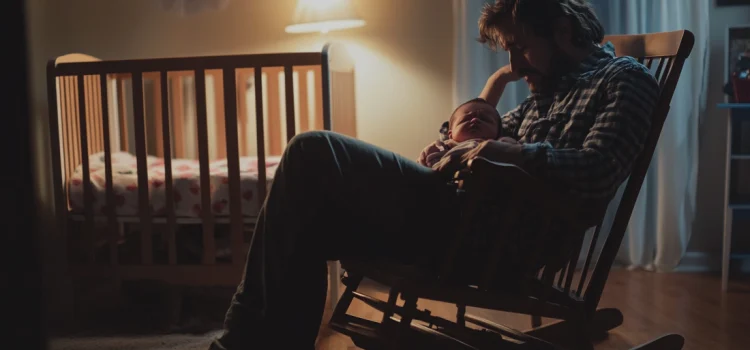

This article is an excerpt from the Shortform book guide to "Precious Little Sleep" by Alexis Dubief. Shortform has the world's best summaries and analyses of books you should be reading.
Like this article? Sign up for a free trial here.
What are common sleep issues that babies have? How can you get over these bumps in your baby’s sleep journey?
Even after you successfully teach your baby to sleep independently, they may still experience some sleep issues. This includes waking frequently at night and waking up early in the morning (4:00 or 5:00 am).
Learn how to get your infant to sleep through the night below.
Troubleshoot Common Sleep Issues
Night Wakings: Night waking typically happens when babies either wake to feed or have remaining unsustainable sleep associations, like the pacifier. Younger babies typically need to eat during the night, while most older babies can fast longer. However, older babies who may not need to eat may still wake up if they’re in the habit of snacking at night. To learn how to get your infant to sleep through the night, you can use the same technique (The Assisted Sleep Method or Self-Soothe Method) you used for bedtime to wean them off unnecessary night feedings.
(Shortform note: Exactly when can babies sleep through the night without eating? Just like other developmental milestones, experts say there’s wide variation in when babies are ready to be weaned off night feedings. Many babies can sleep six to eight hours by 3 months old, though growth spurts are common around 3.5 to 4 months, which may cause temporary sleep disruptions. However, most babies can sleep through the night by 6 months old. Ultimately, you should decide the appropriate night weaning time based on your child’s needs and readiness signs.)
Early Morning Waking: If your baby wakes up too early, Alexis Dubief recommends you try using your ASM or SSM method to encourage them to return to sleep. Try this for at least a week or two before expecting consistently later wake-up times. Another trick is to give them a small “snack” feeding—this may buy you another sleep cycle without disrupting their independent sleep progress.
(Shortform note: According to some infant sleep experts, it’s essential to identify the root cause of your baby’s early morning waking to address it successfully, whether it’s related to sleep associations or a misalignment between your schedule and their circadian rhythm. Strategies to shift your child’s circadian rhythm include exposing them to bright outdoor light in the evening. Patience is key when shifting your baby’s circadian rhythm, as it may take a few days for them to adapt to the new sleep schedule.)
Dubief also suggests adjusting the baby’s bedtime to encourage them to sleep later. If the gap between your baby’s last nap and their bedtime is longer than that suggested in the sleep chart above, they may be overtired, which can cause their bodies to produce stress hormones which might lead them to awaken too early the next morning. Move their bedtime earlier by 15 minutes a day until it’s more in line with what’s typical for their age. Conversely, if your baby goes to bed very early (6:00 or 6:30 pm), they may wake early because they’ve gotten enough sleep. In this case, Dubief recommends you push their bedtime later by 15 minutes over five to seven days.
(Shortform note: The process of gradually adjusting your baby’s bedtime to help them wake up later is often called Fading sleep training. It can also help babies who struggle with late bedtimes and frequent night wakings. According to some infant sleep experts, you can start fading sleep training when your baby is between 4 and 6 months old, once they’ve developed more regular sleep/wake cycles and are capable of sleeping through the night without feedings.)

———End of Preview———
Like what you just read? Read the rest of the world's best book summary and analysis of Alexis Dubief's "Precious Little Sleep" at Shortform.
Here's what you'll find in our full Precious Little Sleep summary:
- Techniques and pointers for improving your baby’s sleep
- Practical guidelines for infant sleep safety
- A nap chart to help you understand your child’s nap needs according to age






